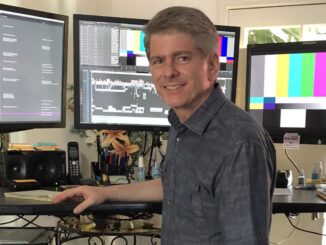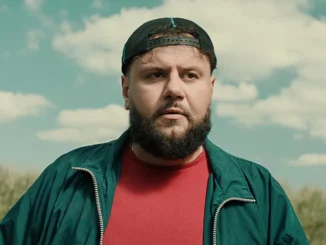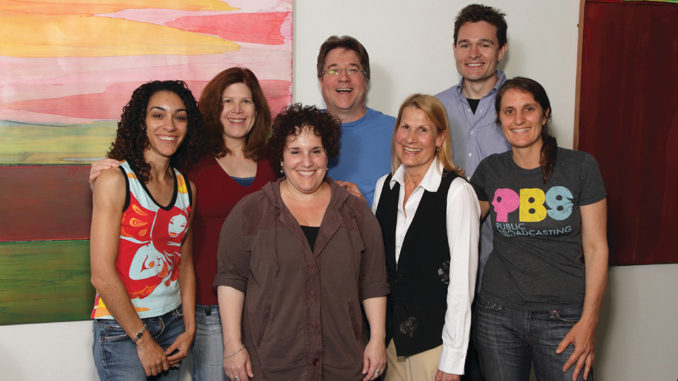
by Laura Almo • photos by Gregory Schwartz
A handful of television editors at different stages in their careers recently sat down with CineMontage to discuss the past, present and future of editing for TV. It was a chance to look at how things used to be done, how the editor’s job has changed with the transition to digital technology, and how things might proceed into the future.
A striking difference between the generations is that many older editors didn’t attend film school, but found their way to editing, perhaps through a friend or family member. Mentoring was an inherent part of the process and a way to learn the protocols of editing. Many of today’s younger editors have gone to film school and entered the business with technical savvy and a body of knowledge that far exceeds that of the older generation.
Still, people coming into editing today need guidance—from managing increased expectations as a result of digital technology to following union contracts—and the panel discussed ways to make the future better for all editors. The panelists included Janet Ashikaga, A.C.E. (Seinfeld, West Wing, Studio 60 on the Sunset Strip), Susan Federman (How I Met Your Mother, It’s All Relative, One on One), Tirsa Hackshaw (Drop Dead Diva, Dirty Sexy Money, Dirt), Geoff Hildrew (Dirty Sexy Money, The Ride: Seven Days to End AIDS, The X-Files [assistant editor]), Briana London, A.C.E. (Army Wives, Crossing Jordan, Grey’s Anatomy) and Mark Manos (Ugly Betty, John from Cincinatti, Dirty Sexy Money).
CineMontage: Do you think your jobs are changing for the better? If not, what needs to be done to improve them? What can history teach us, and what can youth open our eyes up to?
Janet Ashikaga: I think we are very thankful that there is an electronic age now, but I think the expectation of us sometimes is a little overwhelming and perhaps unrealistic. What are the ways that we used to do things? What are the jobs that we never used to consider part and parcel of the editing room? And how can we take that knowledge and analyze what we are doing now and help to make the future better so that we have more respect, and literally more control of our careers?
Mark Manos: To wield the power that we want to have, to shape our profession more, demands that there is some recognition that the editor is not simply a technician. I think there are some producers who consider editors simply as operators of machinery and as people who understand how to make edits so that the continuity looks good. But they don’t realize, really, that we create the flavor of those shows that are watched. That’s not technical; that is an artistic talent.
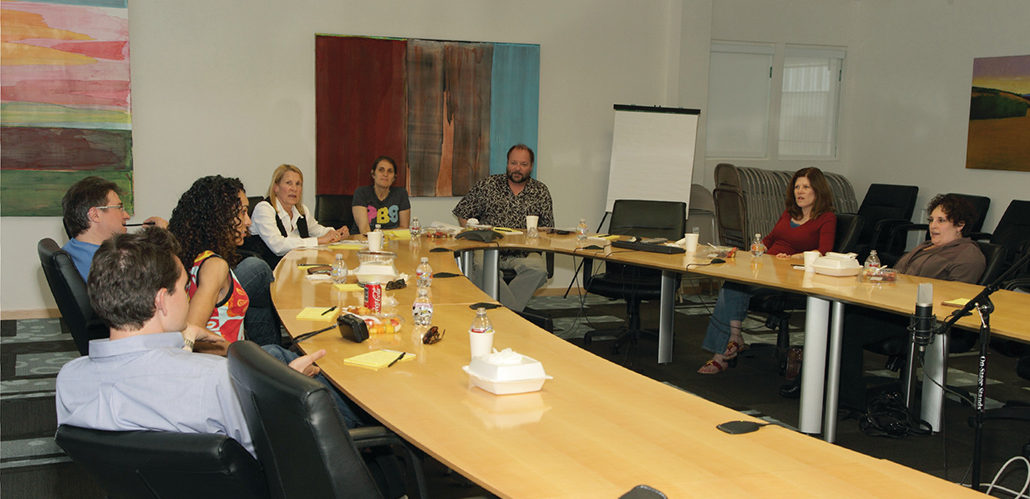
CM: Talk about some of the things you’re now doing that you didn’t do in the past.
JA: We are cutting music, special effects and opticals, and coming up with title sequences––but we’re not getting credit for it or paid for it. We’ve gone from three to two assistant editors and now that’s kind of institutionalized in some places; you get a third assistant editor when you get overwhelmed. I think that there are so many additional jobs that are thrown onto us that sometimes we forget that we are picture editors and storytellers first and foremost.
CM: Let’s briefly talk about the differences between feature film and TV editors. Are film editors dealing with the same issues as you are?
MM: Features have a different sensibility. And editors are not perceived as interchangeable, which I think in television, unfortunately, they are. But what I love about doing pilots is I am often working with feature film directors and they have completely different expectations. Feature film directors really trust editors in general and really anticipate collaborating.
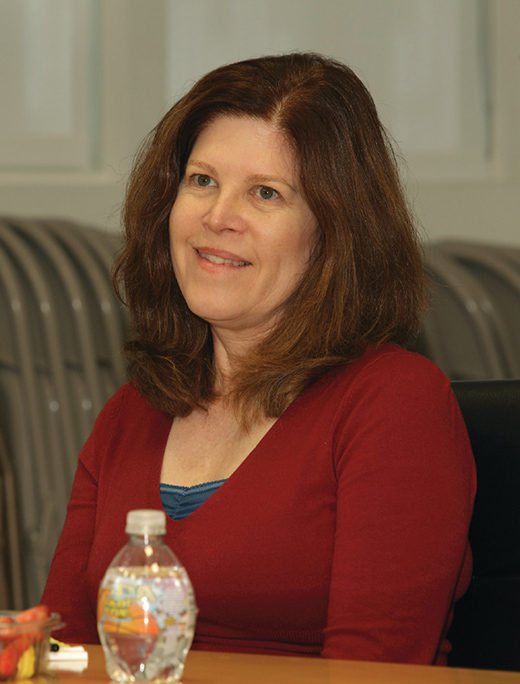
Briana London: Because Hollywood is all about image and PR, maybe we need public relations.
CM: Where do you think this lack of understanding about the editor’s role comes from?
BL: I think it harkens back to people needing to be educated about our roles. We are kind of the silent group.
Susan Federman: I think there’s a disparity. Before, editing used to be so physical and when producers would come to the cutting room, they saw how much work it was. Now, because it’s done on a computer, they think it’s easier, but we are still doing the same work.
Geoff Hildrew: I think a lot of it falls back on the studios and networks as well, because we have so many tools at our disposal that we are able to do something really polished with visual effects, music and sound effects that looks so much more sophisticated than what we used to be able to do. And producers don’t always have the imagination or the know-how to view a cut in a temp form.
MM: This is where the technology, in a certain way, has dumbed down the people who we work with.
JA: When I was on Seinfeld, I started to realize––and I firmly believe—we are not post-production. Post-production happens after us, when you on-line, dub and color-correct the show. We are production. We are working when production starts. On Seinfeld, I literally moved upstairs to be next door to the writers.
Tirsa Hackshaw: I really agree with Janet’s point on post-production versus production. I think the overall view is something that is wrong. Because we are not there during pre-pro, or in the writers’ room, or on the set, producers do not view us as storytellers. They think they have made the story, and we’re somehow executing their story, and that is not correct. We are all making the story.
MM: They supply the paint and we put it on the canvas.
CM: The cutting room is a different place than it once was. Time is spent differently, and assistants really no longer work alongside the editors. How should young editors master the craft of storytelling, and the decorum of the editing room? And also, how are you able to keep up with the ever-improving technology in the industry?
BL: I have an exchange. My assistants keep me up to date on the technology, and in turn I try to mentor them in the artistry of editing. I have my assistants practice cutting a scene or two on each episode. I also have the director and the producer give them the notes and have them sit and execute the notes as a way of training them in the decorum of editing. They have got to learn to be part diplomat, but they are also creative artists and have a right to have an input.
SF: It’s like having mutual respect. I have so much respect for what my assistant is doing because I have done it, and he is doing so much more than I ever had to do as an assistant. In turn, I say, “Hey, can I show you something? I did this two ways. Tell me what you think.” If I have a technical problem, my assistant is the first person I call.
MM: I try to hire and collaborate with assistants who aspire to be editors. That way, I get to talk to them on a creative level, ask them to employ their skills––give them shots, have them practice cutting music and sound effects––and teach them the protocol of the edit room.
JA: I have had an assistant who pretty much enjoys just being an assistant, and is just this technical wizard. Because he enjoys the technical part, I think it really ramps up what we are able to do in the room. I have also asked assistants to take on the role of director or producer. I’ll say, “You sit in that chair and you criticize what I have done, and don’t be afraid to tear it apart, because when you’re going to have to sit and do a scene yourself, you’re going to have this body of knowledge with you.”
CM: Geoff, talk about your relationship with your assistant.
GH: Since I am probably the youngest one here, I have a different experience as an editor. I am only about four or five years out of school, so the technology really hasn’t changed that much. I am used to doing a lot of the technical stuff and creating visual effects. I always rely on my assistant editor more as a partner, as my litmus test, and somebody who I can trust implicitly and ask, “Is this working? Tell me what’s not working?” My assistant is also whom I can bounce ideas off of.
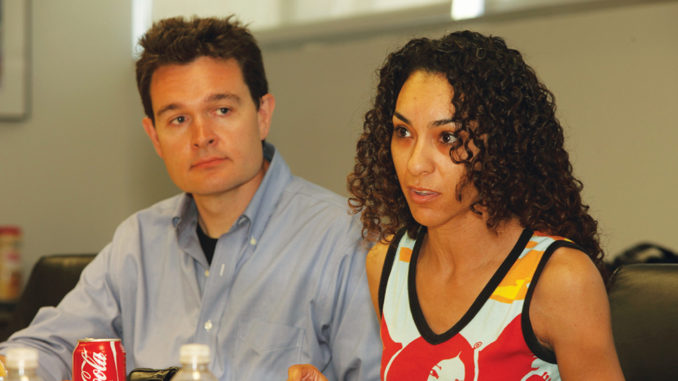
CM: What is your experience working with older editors?
GH: I value that tremendously. I think that the more time I spend with experienced editors, the more I learn that is possible. I value their feedback, and I see us as a group.
JA: This is interesting because I actually spoke to an editor not that many months ago who said that he didn’t want to work with young assistants because he felt very threatened by them, that they were going to try and sabotage him, because they knew so much more technologically and would try to take his job.
TH: I think that’s common; that fear is rampant. I ran into that fear as an assistant.
CM: So is there tension between the older editors and the younger editors?
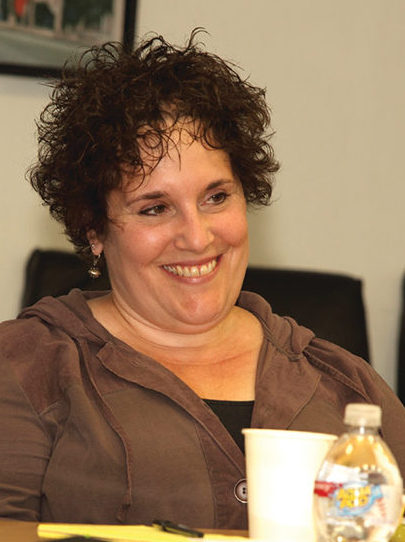
BL: It’s true that a lot of shows are only hiring young, hip editors––people who have been assistants for a few years––and they’re moving them up.
TH: It’s a built-in ageism. I think things are different now, because we have been in the digital age for a while. But when people were still not sure about the Avid, suddenly older editors were losing control. It was poisonous. But I think now everybody is on board, digitally; at least everybody can run the Avid.
GH: I think some of these young assistants are coming up so quickly without learning the craft of editing. The producers, studios and networks don’t know how to watch a cut when their expectations are so much different, and so these kids can come in and dazzle them with something.
CM: Is there also an issue with reducing the number of assistant editors?
BL: Yes. The assistants are not getting an opportunity to work one-on-one with somebody who has a creative vision to impart. Also, assistants don’t get a chance to put their own imprint onto an episode, because they can’t stick with an episode. Sure, they’re technically savvy, and we’re having a lot of technical people come up through the ranks, but where is the artistry going?
CM: You all mentioned producers and studios having higher or different expectations of what a cut should look like––effects, music, etc. What are some of your experiences and concerns about the expectations of studios?
BL: The studio and network won’t watch a cut unless it has music. My current producer makes us strip all the music out when we send him the cut, which is unusual and really nice.
GH: We spend more time doing music notes than picture, for example, re-tracking top to bottom.
SF: I said something on a notes call to the network people this year because on every cut they would say something like, “We’re going to need more music in this cut.”
JA: What they expect to see is literally a finished product before it’s finished. And that’s what we have to deliver; that’s the expectation.
MM: Yes, if you talk to the music editors, they’re losing out on jobs, their rates are slashed.
CM: Assistants aren’t supposed to cut shows, but the only way to get experience is to cut shows. Is it reasonable to ask assistants to cut scenes if they don’t get the credit or compensation? Are there other ways to help assistants move up? How are assistants supposed to get editing experience?
JA: Maybe I am really a stickler about it, but if people do a job, they should get compensated for it. And I feel really strongly that assistants have so much work to do, so if they’re not going to get compensated for doing something, then I don’t think it’s right to use the footage.
SF: The only way that I was able to move up was taking a job working for an editor who had aspirations to direct. He was directing so much that he wasn’t physically able to cut all the episodes on the show. But I agree that it’s not fair to put cut footage that somebody’s done into a show and not give them credit for it.
CM: There has been a lot of dialogue over the years about how digital has changed things. Has there ever been a formal dialogue about the impact of new technology on the editor’s job?
BL: No, only about what digital has done as an advantage for the filmmaking process––but not about how it has changed the attitudes and the protocol of editorial.
JA: For example, I think assistants who bring in laptops should get a box rental for it, and the agreement requires that.
GH: There are so many resources that we need to do our jobs that aren’t supplied to us––from sound effects libraries to the use of laptops to music. I have got four crates of stuff that I bring in for every show just to get off the ground and running. A DP can’t shoot film if he doesn’t have a can of film; we can’t track a show if we don’t have a sound effects library.
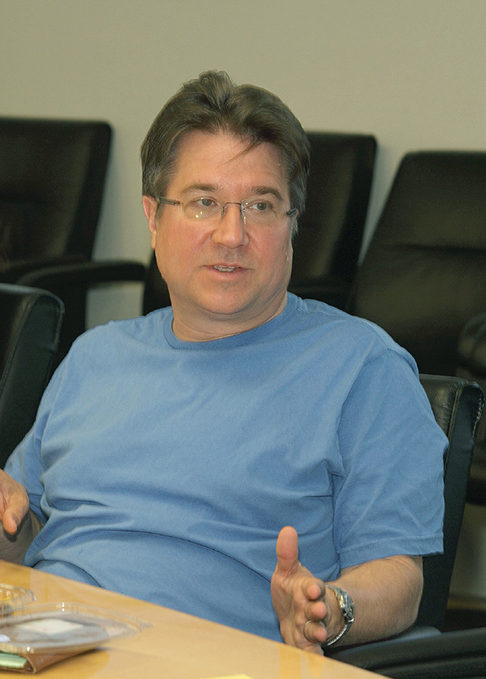
CM: So are TV editors now expected to bring in their own sound effects library?
BL: Yes, I have to bring my sound effects and put them in the Avid or my assistants have sound effects libraries and they are expected to bring them.
CM: I would ask the older generation of editors, who have been editing before the transition to digital, what concerns do you have about younger editors and what kind of advice would you give to them?
JA: I think laying out the ground rules will really help a lot of them.
MM: It is important when you’re mentoring assistants, especially new assistants, to let them understand the boundaries and protocol of editing. You are setting the template for their lives.
CM: And finally, what would the younger editors like to say to the older generation?
TH: Perhaps the Guild should have a presentation for all editors, explaining the ground rules, how things should be, what the expectations are…
GH: We learn by example from older editors. We follow in your footsteps.



